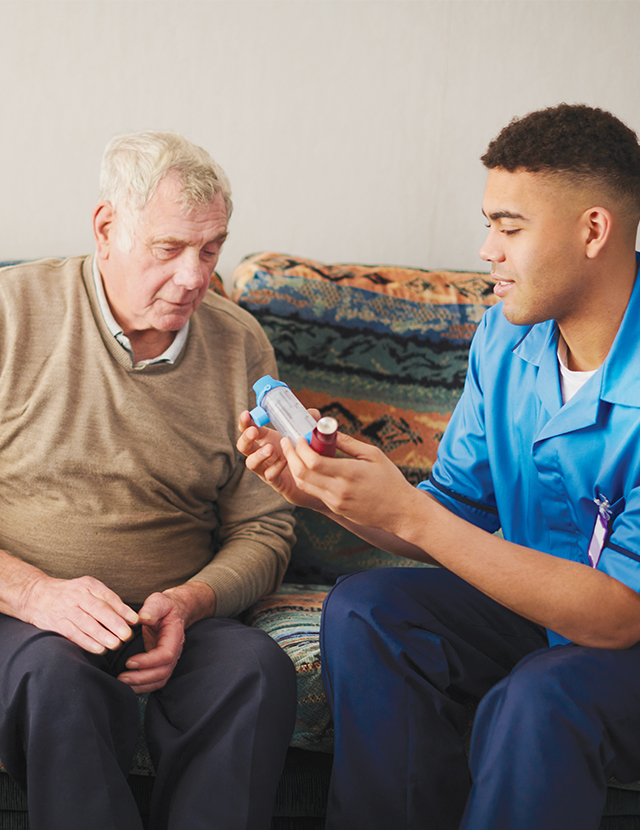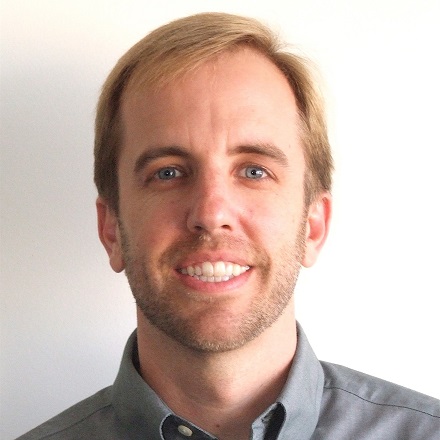Creating A Catalyst for Change: New Policies Support Communities Most Affected by Chronic Asthma
Highlights

In 2022, PHI’s Regional Asthma Management and Prevention (RAMP) program advanced two critical Medi-Cal policies providing coverage for home-based asthma education, environmental trigger assessments and asthma remediation supports.
2 Medi-Cal policies passed providing coverage for home-based asthma education, environmental trigger assessments and asthma remediation supports, thanks to PHI’s RAMP and partners
-
Focus Areas
Chronic Disease Prevention, Health Care & Population Health, Healthy Communities -
Issues
Asthma
Central to the Public Health Institute’s Regional Asthma Management and Prevention (RAMP) program’s mission is a focus on educating and advocating for critical public health policies and services that enhance the quality of life and support better healthcare outcomes for patients who struggle with asthma. While policy change can take a long time, RAMP is committed to this important work and understands that advancing policies is absolutely necessary in order to have critical programs/services in place and to have the greatest impact on those most affected by asthma.
In 2022, RAMP and its partners played an integral role in educating key decision-makers about the value of Medi-Cal for asthma patients, engaging key stakeholders around potential policy opportunities, and offering feedback on proposed Medi-Cal policies. All of these efforts led to the advancement of two major policies which now provide critical coverage for home-based asthma education, environmental trigger assessments and asthma remediation supports. These new policies will also support the sustainability and expansion of asthma home visiting programs in California.

Both policy wins have major implications for increased access to home visiting services for people with poorly controlled asthma, which will improve health outcomes, reduce asthma disparities, and decrease healthcare utilization costs.Anne Kelsey Lamb
Director of the Regional Asthma Management & Prevention program
Implementing a New Asthma Remediation Policy
RAMP and its partners worked closely with the California Department of Health Care Services (DHCS) who enacted a new policy that now allows managed care plans to utilize Medi-Cal funding to remediate environmental asthma triggers for beneficiaries with poorly controlled asthma. In a first-of-its-kind effort in California, and as a result of the new policy, DHCS launched the Community Supports Program, in which Medi-Cal managed care plans have an option to provide non-medical services and supports to beneficiaries in lieu of traditional medical services. The Asthma Remediation option under Community Supports focuses on addressing environmental triggers of asthma and is designed to help prevent costly and more intense healthcare interventions.
Under the Community Supports Program, Medi-Cal plans can choose the “Asthma Remediation” option, which provides beneficiaries with poorly controlled asthma, access to a wide range of supplies and services to remediate environmental asthma triggers in their home. For example, based on a thorough in-home assessment, a beneficiary might receive HEPA air purifiers, HEPA filter vacuums, asthma-friendly cleaning products, minor mold removal, and integrated pest management services.
Advancing an Asthma Preventive Services Policy
Mid-way through 2022, the California Department of Health Care Services (DHCS) enacted a different policy that complements Asthma Remediation services. This new Medi-Cal benefit, called Asthma Preventive Services, covers asthma education and environmental trigger assessments, conducted by Community Health Workers, Promotoras or other non-licensed professionals. The new benefit was put in place as a result of RAMP and its partners’ years of advocacy efforts.
Asthma Preventive Services allows for reimbursement of asthma self-management education that’s provided to any Medi-Cal beneficiary with a diagnosis of asthma. The education can be provided in a clinic, home, group home or assisted living facility. Additionally, the benefit covers an environmental asthma trigger assessment for people with poorly controlled asthma. Asthma trigger assessments can also be provided at a home, group home, or assisted living facility.
Asthma self-management education and asthma trigger assessments offered through Asthma Preventive Services can be provided by licensed providers such as physicians, nurse practitioners, or physician assistants. Importantly, the benefits may also be provided by non-licensed professionals such as community health workers (CHW), Promotoras, community health representatives, or others who meet the qualifications of an Asthma Preventive Services provider.

RAMP could not have accomplished this work without strong partnerships with other stakeholders from the asthma, health, and equity fields. Additionally, these accomplishments wouldn’t have happened without the insights and experiences of existing asthma home visiting programs, which provided extensive feedback on program and benefit design as DHCS’s policy processes were moving forward.Joel Ervice
Associate Director of the Regional Asthma Management & Prevention program
Much of the expertise, experiences and insights which led to passing two new Medi-Cal policies on Asthma Remediation and Asthma Preventive Services came from asthma home visiting programs across the state, many of which are a part of the Asthma Mitigation Project. Funded by DHCS and administered by The Center at Sierra Health Foundation, the Asthma Mitigation Project is a grant program supporting 28 asthma home visiting programs and over 100 community health workers who are serving low-income neighborhoods throughout the state, focusing on asthma management, environmental trigger remediation, and decreasing the health impacts of asthma on adults and children. RAMP is a technical assistance provider to Asthma Mitigation Project grantees.

The feedback to DHCS wasn’t RAMP’s but a reflection of broad agreements across California’s asthma home visiting field. Such approaches both build and reinforce the trust and power of all groups involved.Anne Kelsey Lamb
Director of the Regional Asthma Management & Prevention program
Sustained Funding for Asthma Home Visiting Programs
For years, asthma home visiting programs have had to be dependent on grants to help sustain themselves. These new Medi-Cal policies will not only increase patients’ access to important asthma home visiting services but also serve as a key component to sustaining asthma home visiting programs across the state.
For more information about PHI’S RAMP, view their website.
Work With Us
You change the world. We do the rest. Explore fiscal sponsorship at PHI.
Support Us
Together, we can accelerate our response to public health’s most critical issues.
Find Employment
Begin your career at the Public Health Institute.
